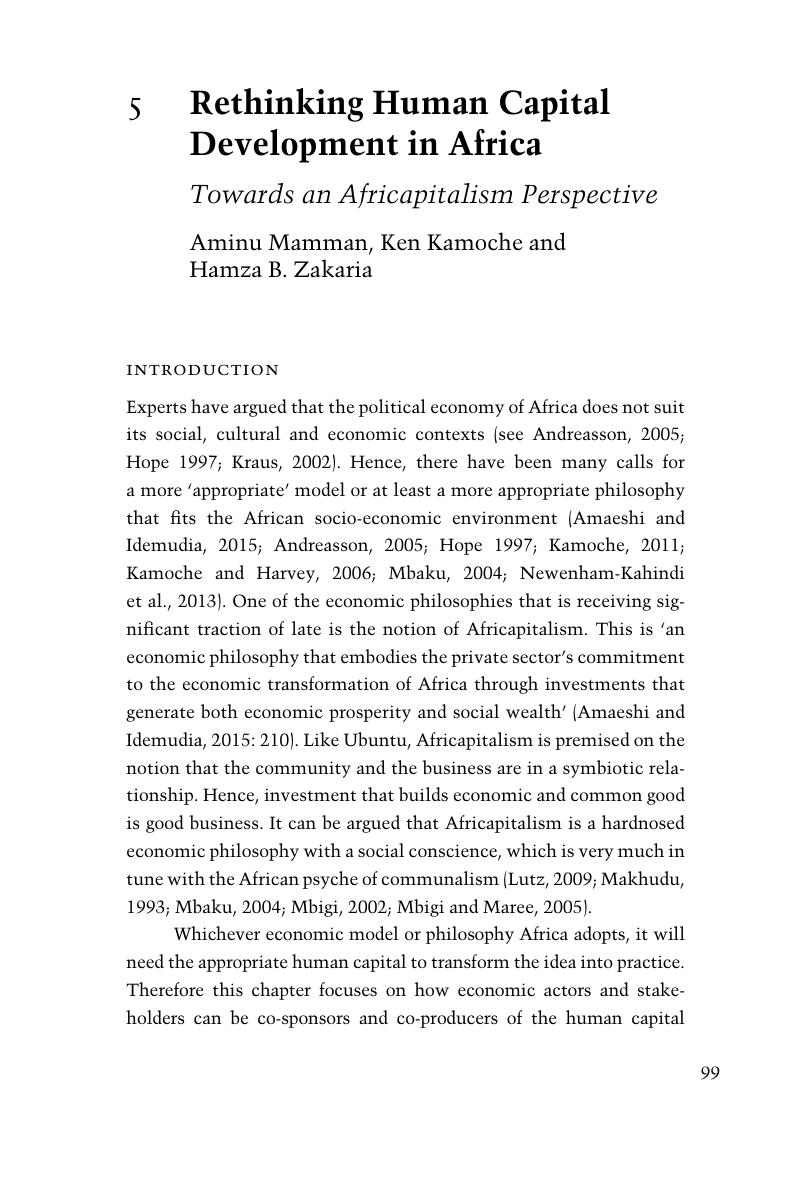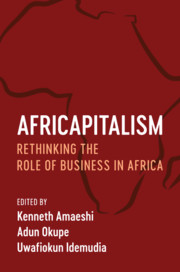Book contents
- Africapitalism
- Africapitalism
- Copyright page
- Contents
- Figures
- Tables
- Contributors
- Foreword
- 1 Introduction
- 2 Africapitalism: A Management Idea for Business in Africa?
- 3 Business Elites to the Rescue! Reframing Capitalism and Constructing an Expert Identity
- 4 Africapitalism and Corporate Governance
- 5 Rethinking Human Capital Development in Africa
- 6 Africapitalism and Corporate Branding
- 7 Who Is an Africapitalist? Reimagining Private-Sector Leadership in Africa
- 8 Social Entrepreneurship and Africapitalism: Exploring the Connections
- 9 Foreign Investors and Africapitalism: The Case for Chinese Foreign Direct Investment in Africa
- 10 Good African Coffee: Adding Value and Driving Community Development in Uganda
- 11 Reflections on Africapitalism and Management Education in Africa
- Index
- References
5 - Rethinking Human Capital Development in Africa
Towards an Africapitalism Perspective
Published online by Cambridge University Press: 25 May 2018
- Africapitalism
- Africapitalism
- Copyright page
- Contents
- Figures
- Tables
- Contributors
- Foreword
- 1 Introduction
- 2 Africapitalism: A Management Idea for Business in Africa?
- 3 Business Elites to the Rescue! Reframing Capitalism and Constructing an Expert Identity
- 4 Africapitalism and Corporate Governance
- 5 Rethinking Human Capital Development in Africa
- 6 Africapitalism and Corporate Branding
- 7 Who Is an Africapitalist? Reimagining Private-Sector Leadership in Africa
- 8 Social Entrepreneurship and Africapitalism: Exploring the Connections
- 9 Foreign Investors and Africapitalism: The Case for Chinese Foreign Direct Investment in Africa
- 10 Good African Coffee: Adding Value and Driving Community Development in Uganda
- 11 Reflections on Africapitalism and Management Education in Africa
- Index
- References
Summary

- Type
- Chapter
- Information
- AfricapitalismRethinking the Role of Business in Africa, pp. 99 - 136Publisher: Cambridge University PressPrint publication year: 2018
References
- 1
- Cited by



